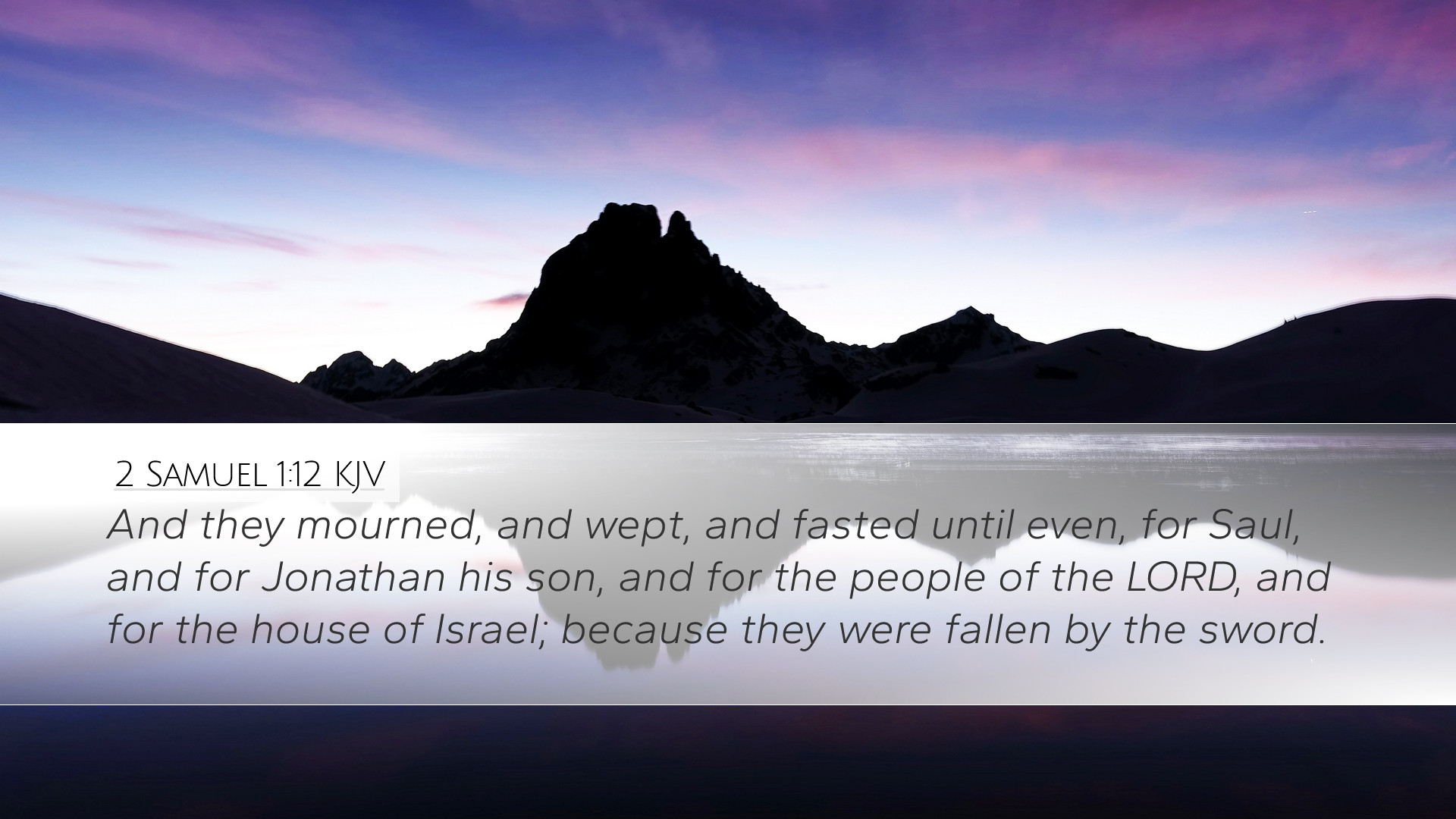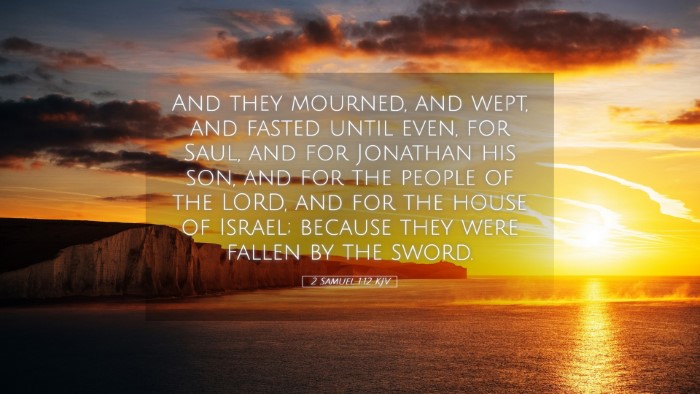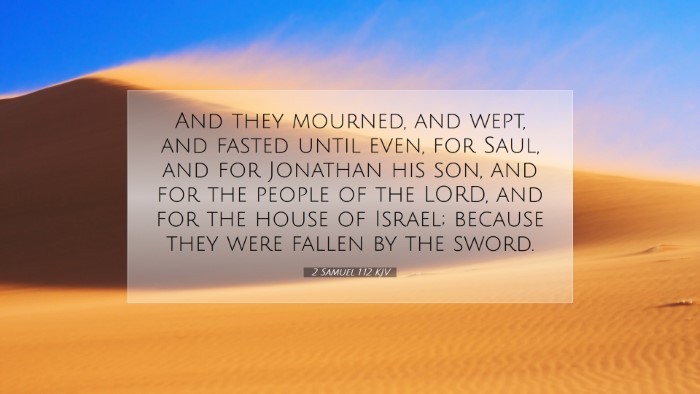Commentary on 2 Samuel 1:12
Verse Context: The verse reads, "And they mourned and wept, and fasted until evening, for Saul and for Jonathan his son, and for the people of the Lord, and for the house of Israel; because they were fallen by the sword." This moment follows the tragic death of King Saul and his son Jonathan on the battlefield, marking a significant transition in Israel's history.
Historical Background
The context of 2 Samuel 1:12 reflects the deep mourning of David and his men following the demise of Saul and Jonathan, illustrating the pain felt throughout the nation. Saul, despite his shortcomings, was still the anointed king of Israel, and his death marked a monumental change in leadership. Jonathan, as a beloved friend of David, significantly contributed to David's life. This verse captures the dual sense of loss experienced by David's band of followers and the nation itself.
Insights from Commentaries
-
Matthew Henry:
Matthew Henry highlights that mourning is a natural response to loss, especially for David, who loved Jonathan deeply. In this moment, Henry notes that the actions of David and his men displayed profound respect for Saul's position as king. He emphasizes that their fasting, alongside mourning, signifies a deep communal grief. To Henry, this illustrates the importance of unity in sorrow and the acknowledgment of divine providence even amid tragedy.
-
Albert Barnes:
Barnes adds depth by stating that their mourning encapsulated not only personal grief but also the spiritual implications of Saul’s and Jonathan’s deaths. He highlights how their unfolding narrative impacts the future leadership of Israel. Barnes notes the necessity of collective mourning to deal with the societal ramifications of such loss, as Saul's reign brought both unity and challenge to the nation of Israel. He points out that fasting in this context is an expression of humility and submission to God amidst their suffering.
-
Adam Clarke:
Clarke emphasizes the cultural aspects of mourning and fasting within the ancient Hebrew context. He argues that such practices are significant for understanding the emotional and spiritual landscape of the Israelites. Clarke posits that mourning signifies the seriousness of the occasion and illustrates the communal aspects of loss—how it binds the community in shared grief and recognition of a higher purpose. He mentions the importance of acknowledging the fallen state of the leadership, which serves as a reminder of the fragility of human endeavors.
Theological Implications
This verse serves as a reflection on leadership, loyalty, and the interplay of personal and communal grief. The mourning for Saul and Jonathan, highlighted in the text, sheds light on the complexities of human relationships and divine election. The loss is poignant not merely for the individuals but as a pivotal moment impacting national destiny.
Grief and Mourning
In analyzing their mourning process, one sees how grief can bring a community together. It is an acknowledgment of shared humanity, a moment to connect with God and with one another in times of sorrow. The fasting indicates a deeper pleading to God for understanding and strength amid the tumultuous transition. David's actions show that even in our sorrow, there is an opportunity for gathering strength from one another.
Understanding Loss
The loss of both Saul and Jonathan could be viewed through the lens of God’s sovereignty. Although Saul had fallen from grace and made many mistakes, a moment of respect and mourning for his leadership is presented. This aspect allows for a nuanced understanding of how God operates through human choices and the inherent tragedy of fallen leadership.
The Nature of Friendship
Jonathan's unique relationship with David underscores the importance of loyal friendships. Their bond was forged in mutual respect and love, profound enough to transcend familial and political ties. This emotional connection enriches the text, providing a model for the nature of true friendship amidst uncertainty.
Application for Today
For modern readers, this passage compels reflection on how communities respond to loss. The example set by David and his men can serve as a lesson for contemporary grief processes—how communities can unify in mourning, creating space to honor those lost with dignity. In pastoral care, the importance of facilitating communal mourning and acknowledgment of grief becomes apparent, enabling both individual and collective healing.
Conclusion
2 Samuel 1:12 invites pastors, theologians, and scholars to explore the profound themes of grief, unity, and divine purpose. The mourning for Saul and Jonathan is not only a reminder of loss but an invitation to reflect on the fragility of life, the complexities of leadership, and the power of friendship. Engaging with this text encourages deeper understanding and sensitivity toward others’ experiences of bereavement within the faith community and beyond.


